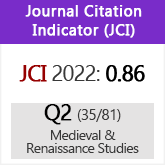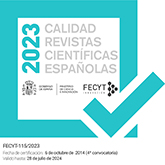The Participation of the Nobility in the Government of the European Towns during the Late Middle Ages. A Comparative Study
DOI:
https://doi.org/10.3989/aem.2007.v37.i2.53Keywords:
Towns, Urban government, Urban nobility, Europe, 14th and 15th centuriesAbstract
In the western European towns the presence of members of the nobility in their institutions of local government was not a very widespread phenomenon during the Late Middle Ages. It can only be perceived in a great scale in very few regions, mainly in the kingdom of Castile and in Italy. In this article the author gives account of the main signs of the political control that the nobility exercised over the institutions of local government in the Castilian towns. He then pays attention to the important differences that in this respect existed during the Late Middle Ages between these towns and those of other kingdoms of western Europe, where the nobility didn't participate in the institutions of local government. He proposes some exemples taken from the kingdoms of the Crown of Aragon, the German Empire, France and England, leaving out of his consideration the case of the urban republics in Italy because of their specifical character, derived from their important degree of autonomy.
Downloads
Download data is not yet available.
Downloads
Published
2007-12-30
How to Cite
Diago Hernando, M. (2007). The Participation of the Nobility in the Government of the European Towns during the Late Middle Ages. A Comparative Study. Anuario De Estudios Medievales, 37(2), 781–822. https://doi.org/10.3989/aem.2007.v37.i2.53
Issue
Section
Monographies
License
Copyright (c) 2007 Consejo Superior de Investigaciones Científicas (CSIC)

This work is licensed under a Creative Commons Attribution 4.0 International License.
© CSIC. Manuscripts published in both the printed and online versions of this Journal are the property of Consejo Superior de Investigaciones Científicas, and quoting this source is a requirement for any partial or full reproduction.All contents of this electronic edition, except where otherwise noted, are distributed under a “Creative Commons Attribution 4.0 International” (CC BY 4.0) License. You may read here the basic information and the legal text of the license. The indication of the CC BY 4.0 License must be expressly stated in this way when necessary.
Self-archiving in repositories, personal webpages or similar, of any version other than the published by the Editor, is not allowed.















